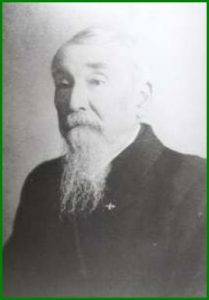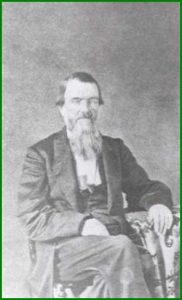In the year 1819 the Synod of South Carolina resolved to establish a mission among the Southern Indians east of the Mississippi river. The Cherokees, Muskogee’s, Seminoles, Choctaws and Chickasaws then occupied Georgia, Florida, Alabama and Mississippi. Rev. David Humphries offered to take charge of the intended mission. He was directed to visit the Indians, obtain their consent and select a suitable location. Rev. T. C. Stewart, then a young licentiate, offered himself as a companion to Mr. Humphries. They first visited the Muskogee’s (Creeks), who, in a council of the Nation, declined their proposition. They then traveled through Alabama into Mississippi, and proposed to establish a mission among the Chickasaws. They found them on the eve of holding a council of the Nation to elect a king. In that council, held in 1820, permission was granted the missionaries to establish missions in their Nation, and a charter was signed by the newly chosen king. The two missionaries then returned to South Carolina. During the return Mr. Humphries concluded that he was not called to preach to the untaught North American Indians. But the Rev. T. C. Stewart, during the same journey, firmly resolved to undertake the self-denying work, and offered to take charge of the contemplated mission. The Synod gladly accepted, and he at once commenced making preparations to enter upon the life of a missionary to the Chickasaws. In January 1821, he reached the place chosen for a station, and named it Monroe Station, in honor of James Monroe, the then president of the United States. Mr. Stewart was the only missionary. Two men, however, accompanied him with their families one named Vernon, a mechanic, the other named Pickens, a farmer. Houses were erected, a farm opened, a school established, and preaching through an interpreter.
Rev. T. C. Stewart was born in the year 1793, and died in Tupelo, Mississippi, October 9th, 1882.

In early youth I was personally acquainted with that great philanthropist, sincere and self sacrificing Christian, T. C. Stewart; and in recalling the reminiscences of those years of the long ago, I can but regard them as treasures from the memory of those who were indeed what they professed to be, honest and sincere friends of the entire North American Indian Race, as well as all mankind the world over. Yet those memories are freighted with sadness, when reflecting that all those hallowed relics have passed a way leaving the poor Indians, for whom they so long and faithfully labored, to struggle among wolves (many in sheep’s clothing) with few such shepherds to counsel and lead them as those old missionary heroes of eighty years ago; while those years with their vicissitudes have silvered the heads of the only two remaining children now living, of those messengers of peace and bearers of the glad tidings of great joy to the descendants of two traditional brother chiefs Chahtah and Chikasah; the one a daughter living in Belpry, Ohio; the other a son living in Greenville, Texas. Both were born among the Choctaws at the Missionary Station Mayhew; but now, under the weight of years beyond those allotted to mans earthly pilgrimage, totter upon the banks of the mystic river; and though the scenes and the land marks of the early labors of their fathers and mothers, hallowed by their foot-prints as the devoted friends of the Red Man, have long been blotted out, as far as concerns the White Race; yet they still live in the hearts of the present civilized and Christian people, the Chickasaws and Choctaws, whom they have handed down to the present as living, moving monuments of the great and abiding truth that the North American Indians everywhere are as susceptible of as high civilization and Christianity as any race of people that ever lived upon earth.
The little colony soon became a center of Gospel light and civilizing influences, to the whole Nation. Other missionaries came at different times to aid the one man, who began the good work: Rev. Hugh Wilson, in 1821, from North Carolina; Rev. W. C. Blair, from Ohio, in 1822; James Holmes, of Pennsylvania, in 1824. The first two named, after the removal of the Indians, went to Texas, where their bodies now sleep; Mr. Holmes was licensed to preach after he came to the mission as teacher. He became a doctor of divinity and taught a classical school of high reputation at Covington, Tennessee, for many years, and died at an advanced age. But it is unnecessary to enter into a detail of the fruits of this mission. It will suffice to say that many Indian youths who have become prominent in their tribe as legislators, preachers of the Gospel and influential citizens, received their education, in part or in full, at Monroe. The foundation of a Christian civilization, to which the Chickasaws have years ago reached and stilt firmly maintain, may be safely said, was laid in the mission of which the noble T. C. Stewart was founder.

About the year 1822 Rev. Haynes opened a school in the Chickasaw Nation, near the southern line of the Cherokee Nation, under the Presbyterian Board of Foreign Missions, for the benefit of which George Colbert established a boarding house. This school and the one established at Monroe by Rev. T. C. Stewart, January 1821, soon became flourishing institutions of learning. In the course of years a son of Rev. Haynes married a Chickasaw girl who formerly had been a pupil at his father s school. He (the son) labored among both the Chickasaws and the Choctaws as a missionary until they emigrated west. He lived with his Chickasaw wife nearly forty years, when she died. He then (1884) went west to live with his daughter, Mrs. Eads, who lives in Lone Oak, Denton County, Texas. At that time he was 88 years of age, still in his mental vigor and attending to his ministerial duties.
In 1821 the Methodist church sent out Rev. Alex Deavers as a missionary to the Chickasaws, who remained among them until they moved west. He had two sons, one of whom married a Chickasaw girl and the other a Choctaw.
